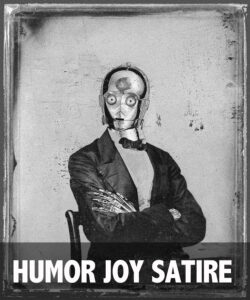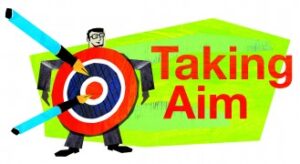
The setting is JF Kennedy Centre, Washington DC. The year is 2021. An Indian comedian by the name Vir Das has the packed auditorium in stitches with his comic banter and unbridled humour. But when the video of the same monologue was uploaded on YouTube it seemed to have offended the ‘Indians’ living here in India. The reason being his statement on “Two Indias’- I come from an India which worships women during the day and gangrapes them by night”. He received a thorough backlash for this comment. His statement was deemed derogatory and insulting. He was swamped with multiple lawsuits. The media made sure the controversy was amplified. At the end of all this fiasco we are left with one essential question, “Do Indians get satire? ”
Indians are not new to satire or humor. The history of Indian theatre dates back to the compilation ‘Natyashastra’ dating back to 2000 years ago. This is believed to be the first ever compilation of on-stage resistance through humor. Even the medieval rulers and dynasties had court jesters who’s wit and humor spelt the fluid trend of comedy, sarcasm and humor intertwined with life. Hence, Indians, so to say, are familiar with ‘Taking a dig’, ‘Making a jibe’, throwing sarcasm or poking fun at themselves. In fact, they are quite efficient and proficient in it. Then what makes Indians hostile to satire? Let’s try and analyze.

Sahitya Academy Award winner Shrilal Shukla’s writing “Raag Darbari” is termed a satire for it brings to fore the absence of women in mainstream rural India, dirty politics, corruption, bribery, power diktat present at the grassroot levels in the 1950’s in a comic tone. Apart from it being a blend of entertainment, information and opinion which draws attention towards the vices present in the society through humour, this writing is also criticism and sarcasm in all its glory. And hence, it stings real bad to anyone and everyone who’s averse to criticism and sarcasm. Just like PM Narendra Modi’s frequent use of the term ‘Shehzada’ for Rahul Gandhi stinges the Congress party leaders and the opposition. They take an instant offence instead of giving a funnier reply. Since sarcasm and criticism is an implicit and innate nature of a satire, it ruffles some feathers and invites controversy wherever it goes. And precisely this aversion to criticism sets the above said hostility in motion. Having said that, one cannot undermine the fact that satire/comedy is an art and is also a powerful tool for social and political change especially where the freedom of speech is curtailed. But, in an endeavour to bring changes one should never cross the thin line prevailing between humor and offence.

A satire can be termed good if it’s only concerned with telling the truth in the most humorous way to impact the learning and persuasion (to act or not to act) of the audience. One can get a glimpse of this in the hilarious Hindi satirical poem “Jungle Gatha” by Ashok Chakradhar. The poem illustrated how a tiger decides not to eat a goat and its kid. Instead of attacking he greets them warmly and requests the goat to vote for him in the upcoming jungle elections. Chakradhar’s message for the audience, here, is very clear-be careful of the ferocious politicians (learning) and use one’s intellectual acumen while voting for the right candidate (persuasion). All literature, plays, cartoons and on-stage live shows having undertones of biases, contempt or indignation promoting sexism, casteism, religious animosity etc. can be termed offensive; it acts as mere propaganda. An under researched content with an insensitive satirist makes the humour employed insulting more than entertaining. The thin line between humor and offence, in such cases, have gone outrageously blurred eliciting anger rather than laughs. Now, it will take only a skilled satirist like Vasu B Primlani to walk this tightrope between humor and offence. In her youtube video “Thoda Adjust Karlo” she provokes thought using her deadpan humour because she undoubtedly possesses the skill of ‘Intuitive Improvisation’ or ‘Thinking on her Feet’ when delivering the content to a live audience. In other words she can read non-verbal cues to anticipate a reaction and modify the content instantaneously if need be. A talented satirist’s content is like a nuclear missile that’s programmed to not miss its target. It will deliver what it intends to. And since all satirists and comedians mock, ridicule and be sarcastic, they end up being in the line of fire.

According to satirist Sanjay Rajoura, being a satirist or comedian in India is a challenge because their punches sometimes land too close to the mark inviting the wrath of the people to an extent that they start to get death threats too. His satirical musical project `Aisi Taisi Democracy’- a strong critique of the bizarre Indian democracy, has not gelled well with the present regime known for coming down heavily on all its critics. So, in a way, he says “All satirists are deemed as ‘anti-establishments’ or ‘anti- whosoever in power’ and hence need to be silenced- a violation of free speech. Through his shows he also addresses the issue of Indians becoming increasingly uncomfortable laughing at themselves. Rajoura feels the present Indian society seems to be getting irked with anything and everything. They seem to have developed zero tolerance towards people with differing opinions and that’s not healthy for a civil society.
Sanjay Rajoura further says the more the religion enters politics, the more will be the curbs placed on the Right to Freedom of Speech and Expression. Therefore, Indians definitely need these satirists and comedians to make them think, laugh, respond and react in a way that will set the country’s moral, political and ethical standards back on track.
Individual discontentment, discomfort and displeasure should in no way become the underlying reason for people developing an aversion to differing opinions. This should be the ‘Thumb Rule’ for us to live by.

Bincy Thomas
Bincy was a teacher by profession but now, is a history buff by choice. Being a fitness enthusiast with a keen interest for trekking, she combines this interest with history and sets out exploring lost and forgotten monuments, to gather new insights and information. When she’s not trekking, yoga, meditation and reading takes away her time.

